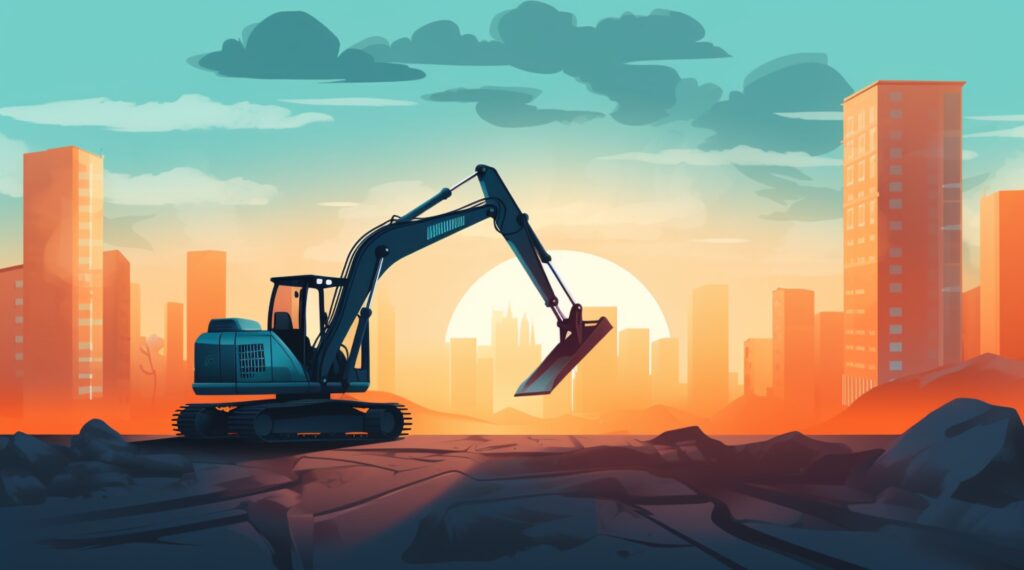
We are reader-supported. When you buy through links on our site, we may earn an affiliate commission.
Did you recently start a construction company? If so, you may have asked yourself, why do construction companies fail? It’s as critical to know what not to do as it is to envision your success.
Running a successful business requires more than the ability to swing a hammer. You need savvy to make it in today’s highly competitive climate. Keep reading to learn why construction companies fail so yours can succeed.
Underestimating Bids
When you initially open your doors, you want to get your business on the map. You know that 92% of consumers trust recommendations from friends and family. To harvest that sweet word-of-mouth advertising, you decide to low-ball your first few jobs. Is this a solid business practice?
Not if you hope to keep your doors open for several reasons. To ensure longevity, you need to learn how to estimate bids reasonably and do so for every job, even when you’re trying to grow:
- You need to eat: Chances are, your mortgage company won’t let you live in your home for free, and local grocers refuse to sell you so much as ramen for a penny. If you give bargain rates so low that you barely break even, you are better off staying in a W2 position — unless you have a trust fund or a wealthy spouse.
- You tarnish your reputation: This consequence of low-balling bids is even more severe. If you build Bob’s deck for $1,500, but later try to charge his next-door neighbor Mark $3,000, they will question your billing integrity. That leaves you with two choices — continue to go hungry, or start over with a new business model.
Poorly Run Receivables
One of the most unpleasant aspects of business ownership is handling receivables. These refer to the monies owed to your company. If you run a one-person operation that relies on day labor, you might lack the energy to track down customers who haven’t paid.
Most businesses establish a 90-day receivables procedure that provides an outline of steps to take at specified intervals. That way, you don’t have to decide how to handle unpaid accounts on the fly. You might want to hire a competent clerk to assist with this process — it can be the same person who manages your books if you’re small.
Insufficient Sales
You need to sell your services if you hope to stay afloat. People always need assistance with everything from small handyman tasks to ground-up builds, so if your phone isn’t ringing, identify the cause:
- Shoddy Workmanship: Construction is a service industry. If you don’t deliver the results your customers want in a reasonable time, they will look elsewhere — and tell their friends to do the same. Always inspect the job site, particularly if you rely on temporary laborers whose work ethic you know little.
- Failure to Change With the Times: Many businesses folded during the current pandemic. Those that remained afloat did so by changing with current events. They implemented stricter hygiene measures and allowed support staff to work from home. They sought new opportunities, like connecting with property managers so that they were first on the dialer if a departed tenant did damage.
Excessive Overhead Costs
Even if you make money, you won’t turn a profit if your business costs soar too high. In construction, this scenario typically arises when you invest in equipment or even office space with an extravagant price tag but little practical use. Think twice before you justify buying an excavator for one job when you can rent one?
Lack of Legal Savvy
The final reason why construction companies fail involves the law. Construction accidents can include workers or the public and range in severity from sprains and minor cuts to fatalities. Over 5,000 laborers died on the job in 2018, and if one occurred because of your negligence, you should expect an expensive lawsuit.
Another legal headache construction companies face involves breach of contract claims. If a general contractor hires your plumbing company to install pipes, and you fail to perform, they may take you to court. Most will require you to purchase a surety bond to secure the contract. If they don’t, it’s wise to do so anyway to cover yourself if unanticipated events cause work delays.
Recognize the Factors Behind Why Construction Companies Fail — and Breed Success
Now that you know why construction companies fail, you can ensure you don’t fall prey to these frequent errors. Here’s to your ongoing success!










